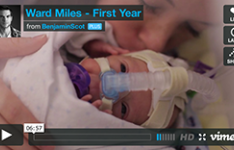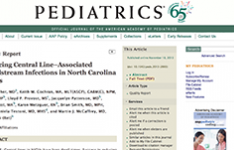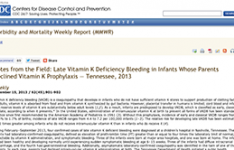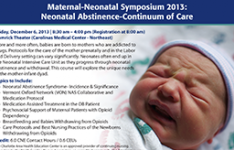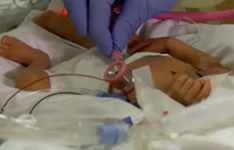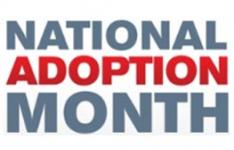News
Here's the recent news from PQCNC.
This video sums up my son's first year. He was born way too early, and the obstacles he had to overcome were really big… Read more...
An article describing PQCNC's CLABSI initiative which focused on reducing central line associated blood stream infections concluding: "A collaborative structure targeting team development, family partnership, unique bundle elements and strict reporting on line care produced the largest reduction in CLABSI rates for any multiinstitutional NICU collaborative." Read more Read more...
The Centers for Disease Control and Prevention has identified a cluster of newborns in Tennessee with late vitamin K deficiency bleeding (VKDB). VKDB is a serious, but preventable bleeding disorder that can cause bleeding in the brain. In each case, the newborn’s parents declined vitamin K injection at birth, mainly because they were unaware of the health benefits of vitamin K at birth. Read more...
More and more often, babies are born to mothers who are addicted to drugs. Protocols for the care of the mother prenatally and in the Labor and Delivery setting can vary significantly. Neonates often end up in the Neonatal Intensive Care Unit as they progress through neonatal abstinence and withdrawal. This course will explore the unique needs of the mother-infant dyad. Topics and Speakers Include:* Neonatal Abstinence Syndrome- Incidence & Significance Read more...
A video produced in 2012 by the North Carolina Children's Hospital describing PQCNC and the work we do... Read more...
PQCNC is delighted to announce that Ben Saypol, PhD, will be presenting twice at the upcoming annual meeting on January 7, 2014 - register here Read more...
PQCNC is delighted to announce that J. Robert DuBois, will be speaking on “Lessons on Teams from a Lifetime at War” at the upcoming annual meeting on January 7, 2014 - register here Read more...
While there is much greater openness regarding adoption in recent years there are still many wary and marginalizing stereotypes that members of adoptive families encounter on a regular basis. We can help address these challenges as well as the solid evidence for the strengths and resilience of adoptive families. We can also share what the research highlights as the factors that contribute to positive outcomes for adopted children. Read more...

